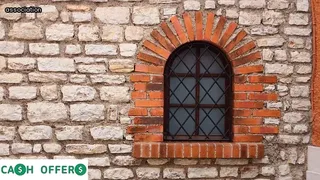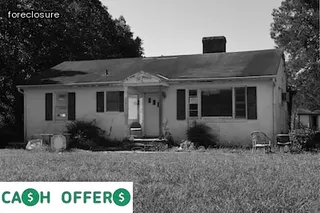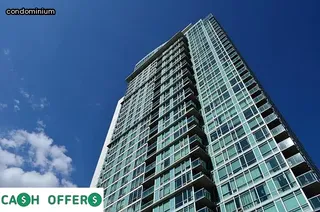In New York, assessments for community associations (COA) and homeowners associations (HOA) are a common way for communities to maintain their property values. Understanding the consequences of delinquent HOA dues is critical for residents who wish to remain in good standing with their association.
COA and HOA assessments typically cover common area maintenance, landscaping, snow removal, utilities and other services. If dues are not paid on time, the individual may be subject to a late fee or an interest charge based on the terms of the agreement with the association.
Additionally, failure to pay fees could result in suspension of access to amenities such as pools and clubhouses or even legal action from the association. It is important to understand that failure to pay assessments can also affect a person's credit score if they fall too far behind on payments, resulting in further financial hardship.
To ensure compliance with HOA regulations and to avoid penalties, it is important for New York homeowners and renters alike to stay current on their assessments and be aware of any changes that may occur in regards to payment terms or due dates.

In New York, a lien can be applied to property when the homeowner neglects to pay their HOA dues. The process of applying a lien begins with the Homeowner's Association issuing a written notice to the delinquent homeowner informing them of the delinquency and offering an opportunity for payment.
If there is no payment within 30 days, then the HOA may file a lien against the property through the county clerk's office. Once recorded, this lien will remain on record until it is satisfied or released by court order.
The effect of having a lien against your property is that you cannot sell or refinance without first paying off the lien. It also affects your credit score and can make it difficult for you to borrow money in the future.
Additionally, if you fail to pay off a lien after 90 days, then it can be foreclosed upon by the HOA, which could result in you losing your home entirely. Understanding these consequences is essential for any homeowner who has delinquent HOA dues in New York in order to ensure they take steps to prevent them from occurring.
In New York, homeowners associations (HOAs) and community associations (COAs) have the authority to impose a variety of fees related to delinquent dues. Depending on the specifics of the association’s bylaws and regulations, these fees may cover late payment costs, interest, and other administrative costs associated with collections.
Knowing what type of fees can be imposed is critical for those living in HOAs and COAs in New York, as the amount of delinquency fees and the rate at which interest accrues are determinants in how quickly delinquencies should be paid off. It is also important for members of HOAs and COAs to understand that, although most payments are due on a specific date each month, some associations can require payments within a certain number of days after receipt of notice from the association.
Additionally, members should be aware that failure to pay dues or assessments may result in suspension or termination of membership rights. Therefore, it is crucial for those living in HOAs and COAs to understand their responsibilities when it comes to paying dues on time so they can avoid any negative consequences associated with delinquent payments.

Paying Homeowner's Association (HOA) dues on time is crucial to avoiding foreclosure. Failing to pay delinquent HOA dues in New York can be especially costly, as the assessment plus interest and late fees can add up quickly.
It's important for homeowners in New York to stay up-to-date on their HOA dues, and if they are falling behind, to take action immediately. One of the most effective ways of avoiding foreclosure is to contact your local HOA board or management company and work out some kind of payment plan.
This could involve paying a lump sum or setting up a schedule for making smaller payments over time. Additionally, understanding the laws in your area can help homeowners understand their rights and options when it comes to delinquent HOA fees.
Knowing any deadlines associated with legal proceedings can also be beneficial in helping you avoid foreclosure on your unit owned by a Homeowners' Association.
Failing to pay Homeowners Association (HOA) dues in New York can have serious consequences. In the event of bankruptcy, HOA dues and liens become a priority debt, meaning they must be paid before other debts are addressed.
This is because HOAs need funds to maintain the common property and services for members, so it is important that homeowners pay their dues on time and in full. If an individual does not pay these fees, they will accumulate interest and late fees which will add to the total amount due.
Furthermore, unpaid dues can lead to liens being placed against a home if the homeowner does not make arrangements with their HOA or arrange for some sort of payment plan. The lien then allows the HOA to collect any money owed through foreclosure or by taking a portion of the homeowner’s income tax refund if necessary.
Understanding what happens when delinquent HOA dues accumulate is key in avoiding further financial hardship in New York.

Negotiating with delinquent owners can be beneficial for homeowners associations (HOAs) in New York. It is possible to come to a mutually beneficial agreement without resorting to costly legal action, which could end up costing both parties more than the original dues.
Furthermore, by taking the time to negotiate and understand why the owner has become delinquent, it may be possible to create a plan that works in both parties’ favor. Negotiations can also help improve relationships between HOAs and their members, as HOAs are able to show that they are willing to work with owners and find solutions that work for everyone.
Finally, negotiations may allow HOAs to quickly receive payment of overdue dues without having to wait for lengthy court proceedings and judgments. This can help ensure that HOAs have the funds needed for ongoing operations and maintenance costs.
In New York, homeowners associations (HOAs) and condominium owners associations (COAs) have the authority to impose legal or financial consequences on delinquent homeowners. If a homeowner fails to pay their dues and assessments, an HOA/COA can take certain steps to collect those payments.
These steps can include suing the homeowner in court, levying fines, putting a lien on the property, or even foreclosing on the home. In addition, HOAs/COAs may be able to charge interest and late fees for overdue payments as a way of protecting their members from financial losses due to unpaid dues.
If a homeowner is unable to pay their dues, it’s important for them to contact the HOA/COA board as soon as possible so they can work out an agreement with the board that is mutually beneficial. Homeowners should also be aware that any unpaid dues could have long-term implications if they try to sell the property in the future.
It’s wise for all homeowners in New York to understand their responsibilities when it comes to paying their HOA/COA dues and assessments so they can avoid any unpleasant consequences.

When homeowners fail to pay their Homeowner's Association (HOA) dues, they can face a variety of consequences. In New York, HOA charges can be particularly complex and overwhelming.
Knowing how to effectively manage these fees is essential for avoiding costly mistakes and potential legal issues. Here are some tips for dealing with HOA charges in New York: research the laws that apply to your specific area; be aware of the penalties for delinquent payments; and understand the options available for resolving any outstanding balances.
Additionally, it's important to stay up-to-date on any changes in regulations or policies that could affect your financial obligations. Utilizing these strategies is an effective way to ensure that you meet all of your required payments, remain compliant with local regulations, and avoid any potential complications associated with non-payment.
When it comes to homeowners’ association (HOA) liens, foreclosure is the process by which a lienholder may take legal action against a delinquent homeowner in order to collect what is owed. In New York, the lienholder can initiate a legal process known as a “power of sale” foreclosure, in which the property is sold through an auction to satisfy the outstanding debt.
In such cases, HOA dues are typically given priority over other liens or mortgages on the property as they are considered “assessments” of fees due from the homeowner. Generally, when an auction occurs and is completed successfully, any remaining HOA fees and costs associated with filing for foreclosure will be paid from the proceeds of the sale.
If there are no buyers at auction or if the proceeds are insufficient to cover all debts on the property, then a judicial foreclosure may be used instead; in this case, a court order would be required to foreclose on the home with any remaining HOA dues being paid out of court-ordered funds. Understanding these consequences of delinquent HOA dues is key when it comes to navigating New York real estate law.

When it comes to mortgages and Homeowners' Association or Community Association dues, there can be serious consequences for delinquent payments. A homeowner who is unable to pay their HOA or COA dues may find that a lien has been placed on their property by the association.
This lien can have an impact on their mortgage and credit score, making it difficult to obtain financing or refinance a loan. The impact of this lien can include higher interest rates, higher monthly payments and a lower credit score.
Furthermore, if the debt is not paid off in full, the lender has the right to foreclose on the property after a certain period of time. For those in New York State, understanding these consequences of delinquent HOA or COA dues is essential in order to protect their financial security and avoid potential foreclosure.
When facing an HOA or COA foreclosure in New York, homeowners should be aware of the legal options available to them. While it is possible for a homeowner to pay off their delinquent dues and avoid foreclosure, this may not always be a feasible option.
For those unable to catch up on their dues, filing for bankruptcy may provide some relief. Additionally, they can challenge the foreclosure in court, by either demonstrating that they were denied due process or arguing that their HOA violated state law when initiating the foreclosure.
Another legal option available is to file a claim against the HOA if the homeowner believes that their rights are being violated; this could help to reduce the amount owed or even stop the foreclosure altogether. Utilizing one of these legal options may allow a homeowner some reprieve from their delinquent dues and any associated consequences.
Yes, if you own a home in a Homeowners Association (HOA) in New York, you are required to pay HOA fees. Failing to pay these dues can result in serious consequences that can be financially damaging.
The fees cover the cost of maintaining common areas and amenities, so when owners fail to pay their HOA fees it affects the entire community. It is important for homeowners to understand the potential consequences of delinquent HOA dues in New York.
If an owner fails to pay their dues on time, they will receive an official notice from the association informing them of their delinquency. The board may also impose late payment fees and fines on top of regular assessments.
In extreme cases, associations may take legal action against delinquent owners by filing a lien against their property or even foreclosing on the property. It is essential for homeowners to understand that not paying HOA dues can have serious financial implications and should be avoided at all costs.

If you are a homeowner in New York and are behind on your Homeowners Association (HOA) dues, it is important to understand the consequences of delinquent HOA dues. One potential consequence that homeowners should consider is whether or not HOA fees can be deducted from capital gains.
When selling a home in New York, any unpaid HOA fees may need to be paid off before the sale of the home can be completed. The amount of capital gains taxes owed on the sale may then be reduced by the amount of money paid towards delinquent HOA dues.
In addition, if any interest or penalties have been assessed on unpaid HOA fees, these may also be deductible when filing taxes for capital gains. However, it is important to note that this deduction may only apply to current tax year deductions; past-due amounts cannot be deducted from previous years' capital gains taxes.
Homeowners should consult their tax professional or accountant to understand their specific situation and eligibility for any deductions related to delinquent HOA dues in order to ensure they receive all possible benefits associated with this type of deduction.
HOA fees in New York can be expensive, and failure to pay delinquent dues can have serious consequences. Homeowners Associations are organizations that manage the common areas of a housing development or neighborhood.
In New York, these may include shared amenities such as swimming pools, clubhouses, and parks. HOA dues help to cover the costs of upkeep and maintenance of these amenities, as well as other services like trash removal and snow plowing.
While HOA fees vary from one development to the next, they can often add up to hundreds or even thousands of dollars per year for each homeowner. If a homeowner defaults on their HOA dues in New York, they may face legal action from the association and potentially severe financial penalties.
It is therefore important for homeowners in New York to understand the potential consequences of delinquency when it comes to their HOAs so that they can make sure their dues remain current and avoid any issues down the line.
The average Homeowners Association (HOA) fee in New York City can vary depending on the neighborhood and size of the dwelling. Generally, these fees range from $200 to $400 per month, though some complex-style apartments may be more expensive.
For those living in a high-rise building or condominium association, there may be additional charges for amenities like a pool, gym, or parking. Understanding the consequences of delinquent HOA dues is important in order to avoid any potential legal issues that could arise.
Failing to pay dues on time could result in fines and possibly even foreclosure of the property if the balance remains unpaid for an extended period of time. Knowing your HOA fee and making sure it is paid on time are both key steps to avoiding any unwanted legal problems associated with late payments.